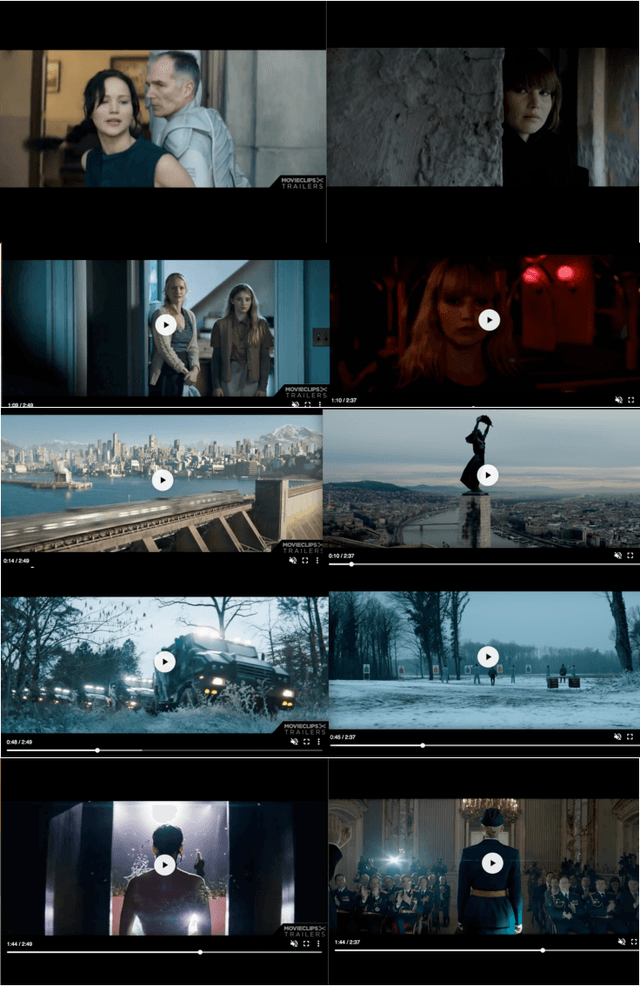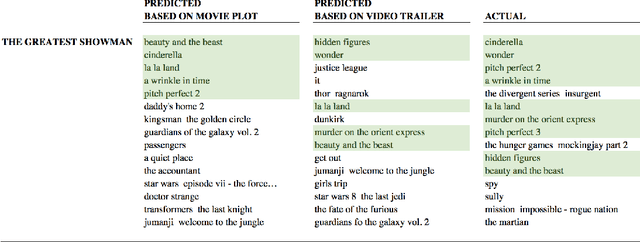Julie Rieger
Competitive Analysis System for Theatrical Movie Releases Based on Movie Trailer Deep Video Representation
Jul 12, 2018



Abstract:Audience discovery is an important activity at major movie studios. Deep models that use convolutional networks to extract frame-by-frame features of a movie trailer and represent it in a form that is suitable for prediction are now possible thanks to the availability of pre-built feature extractors trained on large image datasets. Using these pre-built feature extractors, we are able to process hundreds of publicly available movie trailers, extract frame-by-frame low level features (e.g., a face, an object, etc) and create video-level representations. We use the video-level representations to train a hybrid Collaborative Filtering model that combines video features with historical movie attendance records. The trained model not only makes accurate attendance and audience prediction for existing movies, but also successfully profiles new movies six to eight months prior to their release.
Collaborative Metric Learning Recommendation System: Application to Theatrical Movie Releases
Mar 01, 2018



Abstract:Product recommendation systems are important for major movie studios during the movie greenlight process and as part of machine learning personalization pipelines. Collaborative Filtering (CF) models have proved to be effective at powering recommender systems for online streaming services with explicit customer feedback data. CF models do not perform well in scenarios in which feedback data is not available, in cold start situations like new product launches, and situations with markedly different customer tiers (e.g., high frequency customers vs. casual customers). Generative natural language models that create useful theme-based representations of an underlying corpus of documents can be used to represent new product descriptions, like new movie plots. When combined with CF, they have shown to increase the performance in cold start situations. Outside of those cases though in which explicit customer feedback is available, recommender engines must rely on binary purchase data, which materially degrades performance. Fortunately, purchase data can be combined with product descriptions to generate meaningful representations of products and customer trajectories in a convenient product space in which proximity represents similarity. Learning to measure the distance between points in this space can be accomplished with a deep neural network that trains on customer histories and on dense vectorizations of product descriptions. We developed a system based on Collaborative (Deep) Metric Learning (CML) to predict the purchase probabilities of new theatrical releases. We trained and evaluated the model using a large dataset of customer histories, and tested the model for a set of movies that were released outside of the training window. Initial experiments show gains relative to models that do not train on collaborative preferences.
 Add to Chrome
Add to Chrome Add to Firefox
Add to Firefox Add to Edge
Add to Edge